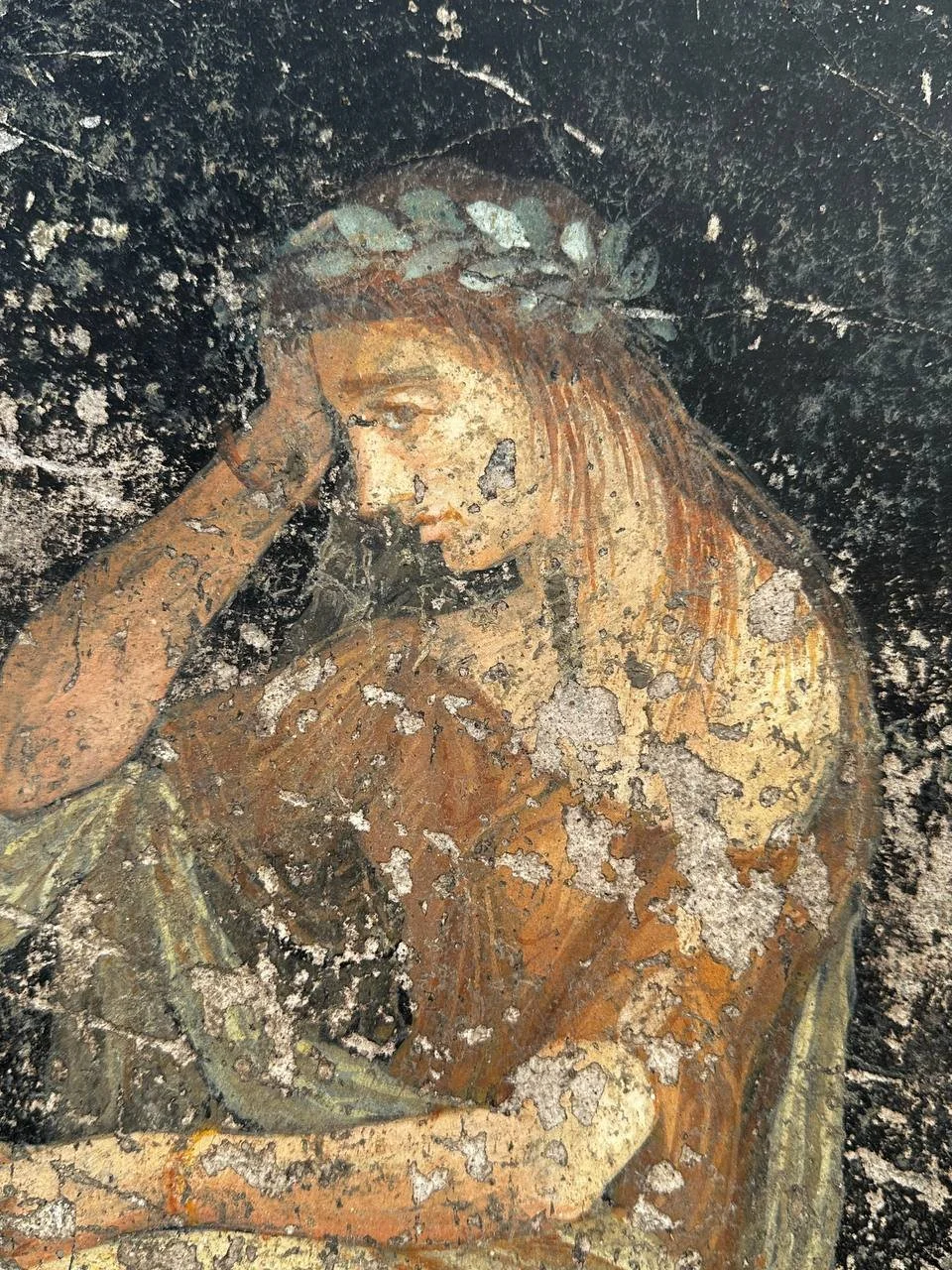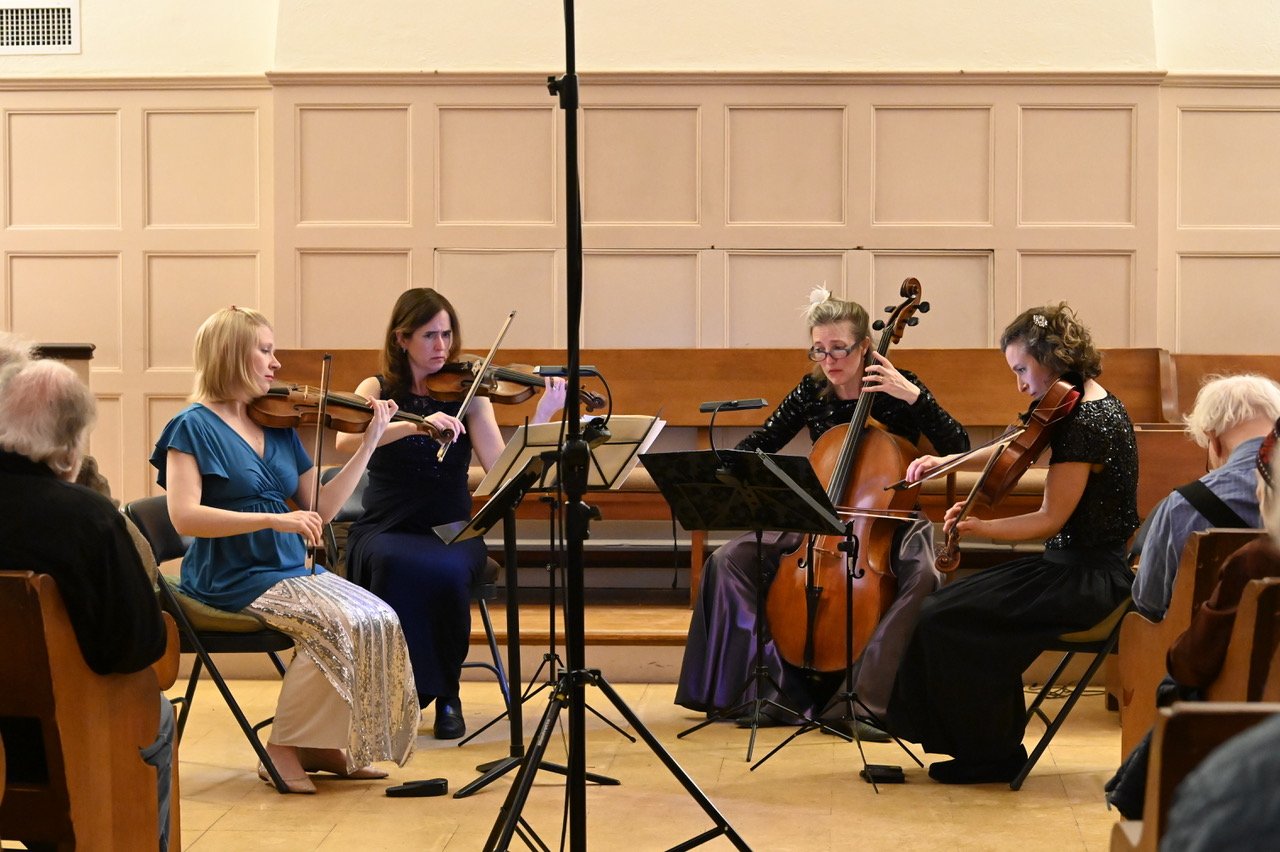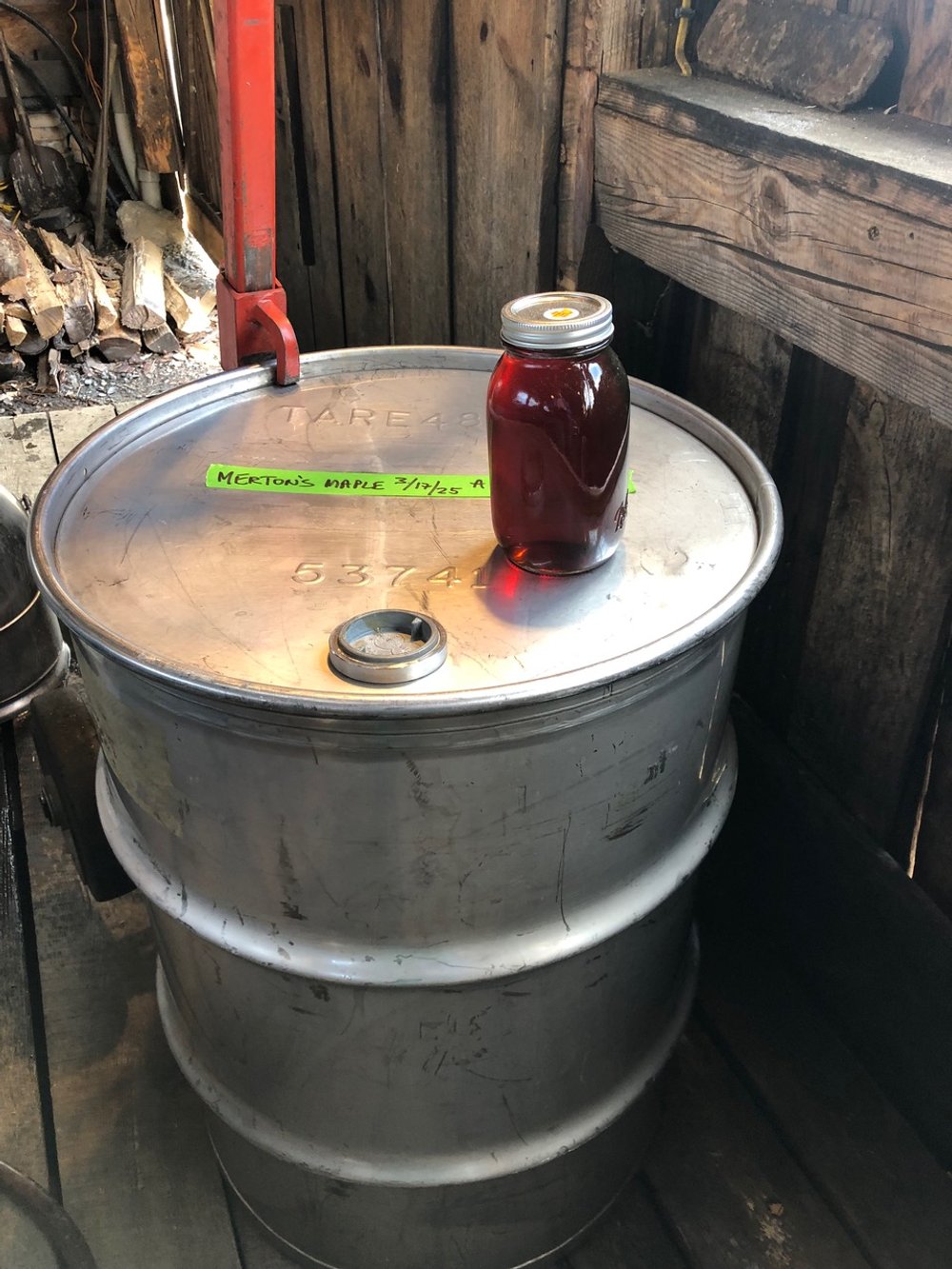Welcome to our March Newsletter!
Cassandra, detail from a newly excavated fresco in Pompeii
As the winter months finally turn towards the hopes of Spring, this stanza from Emily Dickinson’s lyric poem, “‘Hope’ is the Thing with Feathers," captures something we all need at the present moment.
‘Hope’ is the thing with feathers
That perches in the soul,
And sings the tune without the words,
And never stops at all.
- Emily Dickinson
Sarasa’s latest march concert-set streaming free starting march 20 at 7pm!
Speaking of a "tune without the words,” Sarasa is delighted to share our most recent concert-set, “Night at the Opera” streaming from March 20th for a limited time! Don’t miss the chance to hear highly dramatic works for string quartet, including the genius Wolfgang Amadeus Mozart in the context of his overlooked contemporaries, Hyacinth Jadin and Carlo Monza. Our public audiences thoroughly enjoyed the program, and were especially drawn to the Frenchman, Hyacinthe Jadin, who tragically died at the young age of 24, cutting short the promise of a great talent. Watch here for a limited time for free!
With Julia Glenn, Susanna Ogata, violins; Anna Griffis, viola; Jennifer Morsches, cello.
@Chung Cheng
music unlocked news:
As part of our outreach programming, we brought excerpts of this program to girls at a detention center in Clinton, MA. It is always so enlightening to hear their reactions to the music. One teen described in detail to all of us how the Minuet and Trio movement from the Mozart d-minor quartet covered a range of emotions — from "anxiety to growing adrenaline to reconciliation to joy"! We also encouraged them to get up and conduct us as we played, to see how it felt to direct a group of musicians. Interestingly they all preferred to share the stage together, and proceeded to conduct with two of them sharing the “podium.” The facility had a warm vibe, and the staff members who joined in with the presentation were very supportive of the girls. One youth mentioned that hearing live classical music reminded her of her father, who played the violin.
sugaring news:
Sarasa’s Director Tim Merton has definitely been keeping busy with his sugaring operation these past weeks. After a very cold and snowy February, the sap has started to gush. So far, he has made almost half of his annual 1,500 gallons of delicious maple syrup!
The myth of cassandra
Fresco of Apollo and Cassandra, “Black Dining Room," Pompeii
The main image for our March newsletter, that of Cassandra, is a detail from a series of recently discovered and exceptionally well-preserved frescos in Pompeii, depicting subjects of the Trojan War. The myth of Cassandra tells of the Trojan princess who had the ability to foresee the future with great clarity, yet her predictions were not taken seriously; increasingly her desperate warnings were dismissed as the ravings of a madwoman. The god Apollo blessed (well, in the end, cursed) Cassandra with the gift of prophecy. When she shunned his amorous advances, Apollo, feeling scorned and vengeful, twisted his gift, ensuring that while Cassandra would always speak the truth, no one would ever believe her. She indeed foresaw the fall of Troy, knew that the Trojan Horse was a ruse, and predicted her own violent end, yet her pleas were met with ridicule and chastisement. It is through this tragic history of unchecked hubris and misunderstood warnings that Cassandra’s tale has become a lasting symbol through the modern concept of the Cassandra complex, describing the phenomenon of valid warnings being dismissed. More than just a tale of unheeded prophecy, however, Cassandra’s myth serves as a timeless allegory for the profound dangers of ignoring dissenting voices, the corrupting influence of power, and the uphill struggle for truth in the face of societal indifference.
up next:
It is hard to believe Sarasa will soon be presenting our final concert-set of the 2024-25 season coming up this May! We are looking forward to welcoming you to this special event, highlighting some special literary giants (Charles Baudelaire, Anna Akhmatova and Mishima) who inspired musicians in the 20th century: Henri Pousseur, John Tavener and Philip Glass. Also, there will be a long overdue reading of string quartets by two women, the German composer Emilie Mayer, a contemporary of Robert Schumann, and the American Arkansas-born Florence Price, a pioneering woman of mixed race heritage whose chamber music was almost lost to the world until it was rediscovered in her summer home in 2009. The familiar image for this concert-set, ‘Flora,' is also taken from one of the most famous frescos found in Pompeii.
Friday, May 16, 2025 at 7pm at Brattleboro Music Center, Brattleboro VT (tickets at bmcvt.org)
Saturday, May 17, 2025 at 7pm at Friends Meeting House, Cambridge
Sunday, May 18, 2025 at 3:30pm at Follen Community Church, Lexington
Program:
Pour Baudelaire per voce solo - Henri Pousseur (1929-2009)
String Quartet in G Major - Florence B. Price (1887-1953)
II. Andante Moderato
Akhmatova Songs, for soprano and string quartet - John Tavener (1944-2013)
Dante
Pushkin and Lermontov
Boris Pasternak
Couplet
The Muse
Death
String Quartet No. 3 “Mishima” VI. Closing - Philip Glass (b. 1937)
VI. Closing
intermission
String Quartet No. 1 in G minor, Op. 14 - Emilie Mayer (1812-1883)
Allegro appassionato
Scherzo. Allegro assai - Trio. Un poco più lento
Adagio con molta espressione
Finale. Allegro molto
With Corinne Byrne, soprano; Elise Kuder, Amy Galluzzo, violins; Mike Kelley, viola;
Jennifer Morsches, Timothy Merton, cellos.


























